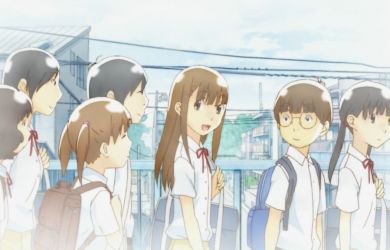
Originally published on metropolis.co.jp on May 2013

With technical mastery and a taste for vintage modern jazz, 25-year-old Yuki Futami is Japan’s belated answer to the late, great pianist Oscar Peterson. Before he heads off to New York’s Julliard, Metropolis got some insight on what a millennial Japanese sees in jazz, and the Yuki Futami Trio’s debut album, Banzai Oscar.
Tell us about your first musical experiences.
When I was three years old, my parents bought a Casio keyboard. I can remember expressing sounds without using a score and dancing. During my earlier years, I played primarily classical and as a teen I listened to jazz, but it wasn’t until after I graduated from high school that I started to play jazz piano.
Why jazz?
When I started the piano, my dream was to become a classical pianist. But I felt I had reached the limit when I was a high school due to the scarcity of jobs. I began to like jazz more and more so I decided to be a jazz pianist and become a professional musician. Now I have no regrets and I prefer jazz.
Which pianists influenced you and why?
Keith Jarrett was influenced by classical musicians and is also a classical musician himself. His music includes classical ideas especially in his intros and endings to his pieces. I feel his music is so spiritual. His piano touch and voicing harmony are sensitive and transparent like a crystal… The more I studied jazz piano, the more interested I became in Oscar Peterson’s piano playing. His style is fundamental to jazz piano and jazz history itself. His sense of harmony, phrase, groove, ability of form…Oscar Peterson has influenced all elements of jazz.
Tell us about your first composition.
When I was 18 years old, I composed my first song, “Bangladesh.” I lived there for a few years when I was a baby. As you may know, there are many compositions using a country name in the title such as “Spain.” “Bangladesh” is mainly composed of D minor blues and I composed this song for a quartet.
Tell us about a few songs on the album.
This album’s concept is a tribute to Oscar Peterson. So on “Cream Pie” I used his phrases, his voicing, and music ideas… Our trio has a wide spanning repertoire but we didn’t have a piece with a Latin rhythm, so I composed “Southern Island.” “Take The 4.5.6 Train” is also a composition I created for this album. My image was a 60’s modal jazz sound, like that of McCoy Tyner. The reason I chose this title is that when I was recently in New York I often took the 4 line from Brooklyn to Manhattan. I felt the New York subway is dark and speedy with an urban taste. The 4 line is marked 4.5.6 and it forks out as you travel north. We have various forks in the road in our lives and my recent experiences in New York gave me inspiration in the next direction I want to take with my life.
What are the difficulties facing a young Japanese person trying to become a pro jazz musician?
Recently there are fewer jobs compared to during the Bubble economy. Even a job performing background music is difficult to get. But actually I think this is a good thing as only a real pro jazz musician can survive. It makes for a good quality jazz world.
Why is jazz so popular in Japan?
Many Japanese adore American and Western European culture. Going back to the 60’s, jazz was the start of otaku culture in Japan as young people really got into spending hours at coffee shops known as jazz kissa. I think many Japanese eggheads also like jazz because it appeals to the intellect. Also, in Japan we are fortunate that music education is quite good in schools as we learn to read music, which is a skill that helps people to appreciate music. Yet there are few people now who realize the influence of jazz in more recent music, and I would like to change that.
What are you looking forward to in New York?
I look forward to meeting incredible musicians, listening to their music, playing with them, and studying at the top music school. I believe going after this opportunity will improve my music.
Body and Soul, May 8; Jesse James, May 21; Sometime, May 25; Naru, June 22. Banzai Oscar is available on T-TOC Records.







